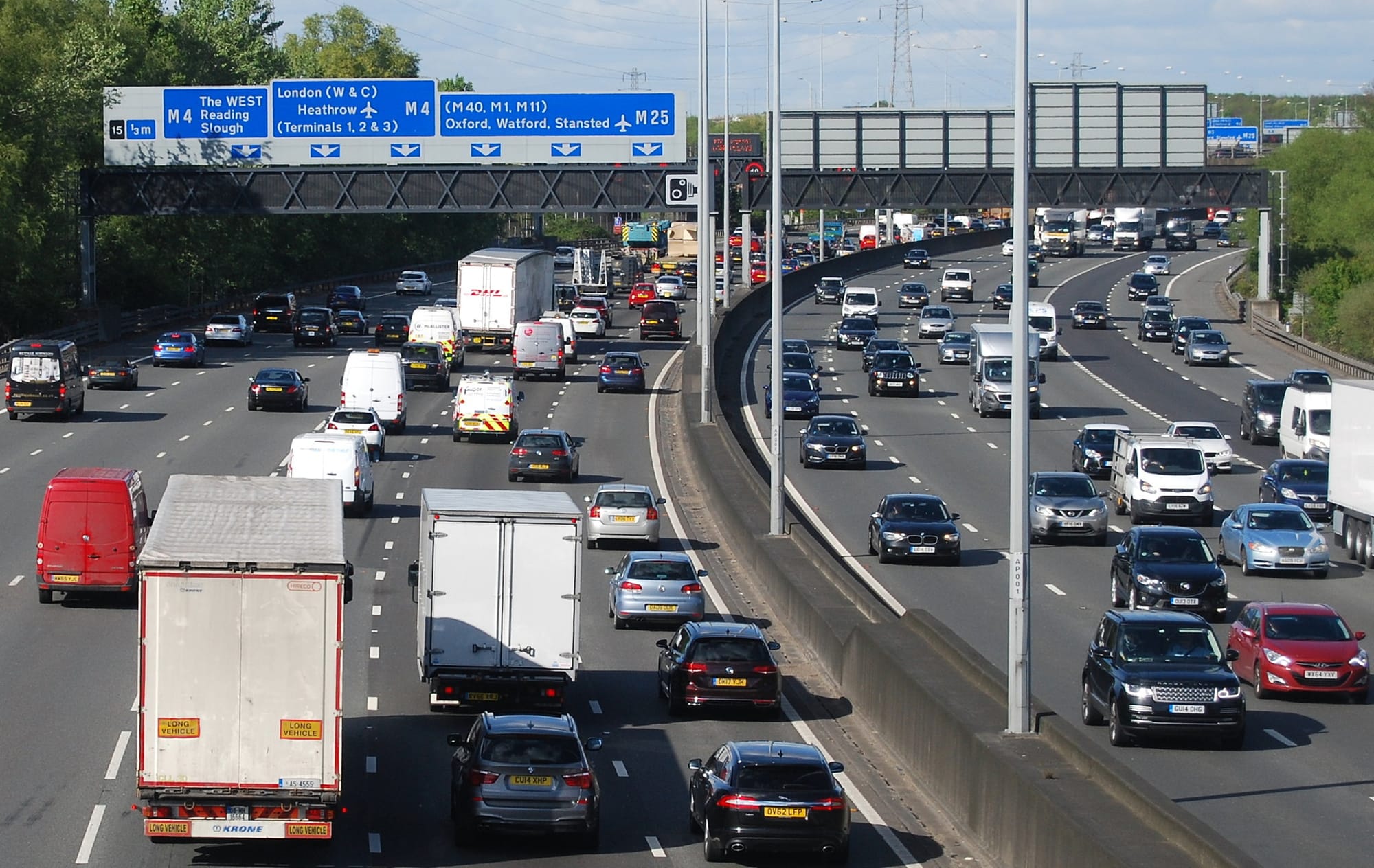There is a particular piece of writing that is native to London. It generally opens on a dramatic anecdote in which the protagonist reaches their breaking point: the landlord jacking up the rent, getting robbed, a particularly grisly bus replacement service experience, things of that nature. They reminisce wistfully about happier days. The ending is always the same: the protagonist declares they are leaving London to live elsewhere. Implicit in the piece is that by relocating, they will find their happy ending — everything the capital couldn’t give them. The ‘Why I’m Leaving London’ article has become such a firmly cemented cliché that Londonist even published a satirical guide on how to write one yourself.
I understand. London can run people ragged. Even if you love the grind and the noise and the scale of it all, only people truly comfortable in this city can avoid wondering how long they can or should tough these things out. Over the last decade, these thoughts seem to have ramped up. Between 2016 and 2022, the fear — or desire, depending on who you asked — was that there would be a mass exodus from London.
People did leave after Brexit, mostly to get away from the UK altogether, and also left during Covid. They’re still leaving now. Not in such drastic numbers that it affects, say, house prices, or competition for rentals, or the size of the crowd outside the Devonshire, and migration figures suggest that people are still moving to the city in droves every year. But they do leave, and a good handful of them also write about it.

After reading a number of these ‘leaving London’ articles, I began to grow sceptical of the central thesis — could it really be the case that living in London inherently makes a person unhappy, and they would be happier elsewhere? To find out, I tracked down four writers and one YouTuber who have contributed to this particular canon over the years and asked them: how is it going now? Are they secretly miserable, out there beyond the ring road? And what are we really asking ourselves, and each other, when we pose the question: should I leave London?
My sample of interviewees, both native Londoners and immigrants, included people who came knowing they would leave, people who know they’ll never come back, people who left and sort of want to return, and — that most controversial of categories – people who left and came back.
Fancy more news from The Londoner in your inbox? Four days a week, we send you a carefully chosen story, plus our best scoops, investigations and recommendations. We prioritise quality over quantity and everything we send is in your inbox — just click the button below to join our free mailing list below. That's it: no ads, no spam, no nonsense.
Reading their original essays, I find that the most common reason given for fleeing the capital is, unsurprisingly, the sheer cost of living here. Both Lashan Ranasinghe (‘I quit my job and I'm leaving London forever’, YouTube) and Laura Barton (‘I moved to the coast for a better life – now I’m back in London where I belong’, The Guardian) were forced to relocate by the economics of London. Ranasinghe’s in Paris now, having escaped stagnating London wages working as an engineer, and has no plans to return. Barton, as her headline suggests, left London for the Kent coast, picturing an offbeat creative community something like Portland, Oregon, and instead finding that people were “cliquish and gossipy and parochial”. So she scuttled back.
The premium on square-footage in the city is what led Hayley Myers (‘Leaving London was a wrench, but our family life back in Coventry has so much more to offer’, The Guardian) to move back home to Coventry in 2022, after 14 years in London. She’d spent her twenties working in music, and the city was the obvious place to be. When she became pregnant with her second child, though, she and her partner knew that the idea of their affording to buy a family home in London was laughable. “You suddenly realise, okay, there is a certain type of family that is able to live comfortably in London, and we had to admit that it just wasn’t going to be us,” she says. She admits there’s a certain amount of FOMO about being out of the capital, though, which is one reason why she’s back in London on the train pretty regularly.

Myers’ complaint about the lack of room in London for people with families — or those thinking about starting one — was shared by several writers. Simon Horsford (‘Live in London? No thanks, I'm happier in Bath’, The Telegraph), a 66-year-old born and bred Londoner, left London for Bath ten years ago. His is a familiar tale: he and his wife wanted more space, but also to be within commuting distance to London. He found that they were far from the only ones with the same idea. “The funny thing that I found moving down here, I thought everyone would be sort of straw-chewing, cider-drinking locals, but they’re all basically Londoners,” he says.
Peace, quiet and space were also the motivating factors for Hannah Moore’s departure (‘Why I had to leave London’, The Spectator) — as well as the fact that when her elderly neighbour died, their body wasn’t discovered until it had “melted into the floor”. At this point, Moore, who is from rural Montana, knew she’d had her fill of the cold anonymity of city living. In a piece for the Spectator, she described moving with her husband to East Sussex, where he’s from. They got the serenity they desired — and their kids are now able to totter over to granny’s house whenever they want — but making friends in the countryside is a tricky business. Moore had no friends locally until her daughter started school, and all are what she describes as “mom friends.” She says she almost feels “ten years older.”
With apologies for disappointing the schadenfreude-chasers among you, all these people are still happy with their choices. If they could hit a button and unravel it all, never leave London, only Barton says she would do it. They are all broadly happier outside of the capital. It’s not all rosy, though. Horsford hasn’t ruled out moving back to the city one day, and Myers laments that it sometimes takes her three hours to get home after going to a gig in the capital. Ranasinghe had a rough time finding a flat in Paris, just as he did in London. Many miss their friends who stayed. But most feel that, economically, their lives make better sense outside London. As we all know, the capital is expensive and seems to get more so every time you step outside your house. For the most part, the people I interviewed work remotely — a luxury, of course, that many don’t have, and there are many Londoners who would rather not be in the city but are forced to by their jobs.

Perhaps more surprising was the deep reflection their moves had prompted about life in general. To stay or to go gets at something existential. There is often a defensive note in a ‘leaving London’ piece — a need to argue against some voice, internal or external, that says to leave is to have failed. To have come to the big city, full of earnest desire to make it your own, only to give up. In a 2014 leaving London piece in the Independent, journalist Tom Cullen wrote about how his media colleagues thought he was mad to be giving up on London for Birmingham, ending with a slightly petulant sounding: “But do you know what’s even more insane? Staying in a city based on its reputation instead of what it actually offers you.” In Myers’ article, she wrote that she and her husband questioned whether going back to Coventry could be interpreted as “admitting defeat”. “Are we coming back with our tails between our legs?” she wonders, “if we could have afforded a nice place in Islington, would we have stayed? Maybe, I don’t know.”
When I read these pieces, I’m partly drawn by a sort of rubber-necking instinct, wanting to peer at the car crash of other people’s time in London. But a more vulnerable part of me reads because I want an answer to the question: could things be better? London is the centre of my world. I was born here, I have lived here almost all my life, and I may well die here. What would it be like if I gave it up? Could I, too, be the sort of person who gets real joy and fulfilment out of kneeling in my garden soil all weekend, learning the names of birds and what have you? Could I have a whole house to myself and find bathroom fixtures compelling? Would I like myself better if I lived in Leipzig? Who, at root, am I?

These questions aren’t unusual. Everyone I spoke to described the process of being in London, and then not being here, as one of self-examination. There’s a quote from a Mavis Gallant short story in which a character moves somewhere new that I think of from time to time: “My own character seemed to me ill-defined… I thought that if I set myself against a background into which I could not possibly merge, some outline would present itself.” London is a particularly vivid background against which to set a person, to use the Gallant formulation. Being here can show you who you are, either because you fit or because you don’t. “London has allowed me to be the person I think I always have been, and unapologetically grow into that. It's allowed me to unashamedly be interested in lots of things,” says Barton.

Moore hadn’t realised what a deep impression her rural upbringing had made on her until she tried to live in one of the biggest cities in the world. She remembers bursting into tears in front of her somewhat bemused husband one evening. “I said I couldn’t see any trees,” she says, laughing. “London has the most green space of any city in Europe. But it was not seeing forests and woods and hills and deer, and that's what I realised that I need.” Deciding to leave can mean leaning into a different side of yourself. Before she moved down to East Sussex, Moore had a vague fear that she would become another suburban mum doing the school runs. That’s exactly what happened, but it turns out that’s an alright life too.
No one place is going to offer you total, unmarred happiness. Is a period spent living in the ‘wrong’ place wasted time? Is leaving a failure or a triumph? Maybe what living in this city really prompts us to think about is how we want to live. It struck me that most of these conversations ended with some version of the sentiment: life is hard, nothing is perfect, you just do your best to make the right choices and live with the consequences.
When talking with my interviewees, I began to notice patterns in how they spoke. Many of them used the phrase “room to breathe” to describe what they wanted out of leaving the capital, by which they meant more space, less punishing financial pressure, a gentler life. They all got that, and while you pay for it in things like less cultural stimulation, choosing to leave London seems to work for people when they truly commit to the different ways of living offered by their new location. Moore still loves the art and the theatre and the history she had on her doorstep in London, but nowadays she gets her fix of intellectual exploration at home in the countryside through books. Similarly, instead of mooning over what she’s missing in London, Myers has leant into the joy of being able to take her kids to a friend’s house for tea in ten minutes, rather than spending an hour on public transport.
I know that there is so much life and fulfilment to be found outside of the M25, if you want it. But when you’re here day in and day out, it’s hard to keep that truth in mind. I find the evidence that people leave London and discover that things are different, not wholly good and not wholly bad, reassuring. The grass is greener where you water it.
If you enjoyed today's edition, please forward it to friends and encourage them to join our mailing list.

Comments
How to comment:
If you are already a member,
click here to sign in
and leave a comment.
If you aren't a member,
sign up here
to be able to leave a comment.
To add your photo, click here to create a profile on Gravatar.



